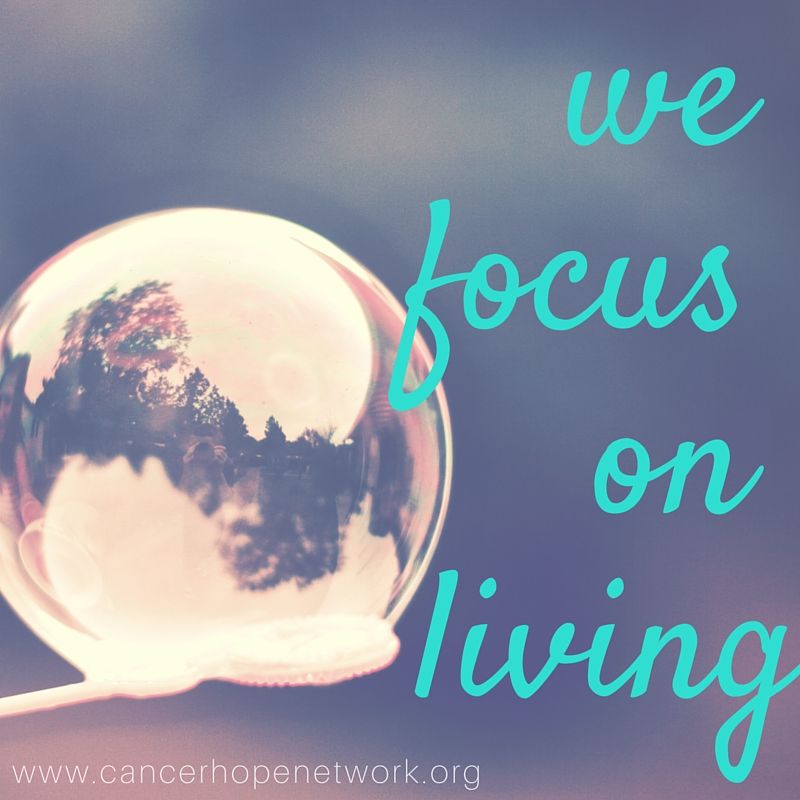Palliative Care and Hospice
We focus on living.

Earlier this week, the Cancer Hope Network staff had a chance to sit down with Michele Cameron, of Atlantic Health’s Home Care & Hospice program. It was a wonderfully informative session and we wanted to share some of the highlights.
Michele spoke about the growing focus on helping patients avoid readmission to the hospital, the trend toward discharging patients directly to their homes, trading homecare for extended stays in rehabilitation facilities. She also discussed advances in palliative or supportive care and important information about hospice care.
Like many across the nation, Atlantic’s Support Care Program is administered by highly-trained hospice staff and aids patients who have a serious illness but do not require a move to hospice care. These programs often focus on bridging the service gap between hospitalization and hospice care.
In a hopeful sign for patients and families, more doctors across the country are opening palliative care practices. There’s more reimbursement/coverage available for this type of care, giving patients access to expert in-home care without additional financial burden. Both palliative and hospice care services are covered by Medicare, Medicaid and most insurance plans.
While specific regulations vary by state, access to palliative or home care generally requires three conditions be met: A patient must be homebound, have a “skilled need” that requires care from a nurse and care must be ordered by a doctor. The criteria for hospice is a life expectancy of less than 6 months and a doctor's order.
Perhaps most inspiring takeaway from our visit with Michelle was the fact that palliative and hospice care are about much more than the end of life.
Although an official move to hospice care changes the focus of care from cure to comfort, “We don’t focus on dying, we focus on living,” she said. “Many people are reluctant to enter hospice care, thinking it means they are giving up. We hear repeatedly ‘I wish we’d done this sooner.’”
Once in hospice care, the staff focuses on fulfilling family wishes, creating lasting memories and helping families deal with a difficult time. Hospice teams provide round-the-clock access to care and support that is personalized to individual needs. The team works with a patient’s current doctor to coordinate care and create an experience that is tailored to meet the patient’s wishes.
While some patients are happily discharged from hospice, many are not. For those families, the hospice team works to provide support even after their loved one’s death. From bereavement support groups to personal follow up or a weeklong day camp for children, “Hospice is not just for the patient, it’s for the family.”
For more information:
- New Jersey residents who wish to learn about Atlantic’s program, please call Michele Cameron, 973 379-8400 ext 8638.
- All US residents may call The National Hospice and Palliative Care Organization — 800.658.8898 or visit www.caringinfo.org
- To be matched with a Cancer Hope Network Support Volunteer, please call 877-HOPENET or visit www.cancerhopenetwork.org.



